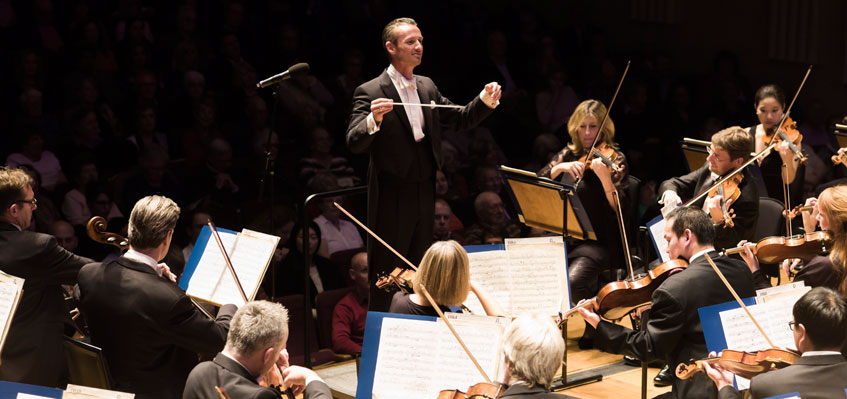Studying a score is like reading a novel, says conductor Alexander Shelley. ‘You feel the same kind of sense of intimacy with composers and their world, as you do with writers and their narratives.’ It’s an analogy which seems fitting, given the focus of Shelley’s latest concert series with the Royal Philharmonic Orchestra. Launching at Cadogan Hall on November 7, ’Myths and Fairytales,’ explores the ‘beautiful and evocative music that was written to describe stories,’ explains Shelley. As such it’s the perfect way to explore Romantic repertoire: ’The emergence of very descriptive music - tone poems where you can almost literally hear the story unfolding - really happened during the nineteenth century’. So there’s nowhere better to start, in the opening concert of the series, than with music of the high Romantic Russian School: Tchaikovsky’s Sleeping Beauty suite, Variations on a Rococo theme, along with Rimsky-Korsakov’s Scheherazade, ‘which chronicles four of the stories of the 1001 nights where Scheherazade evades death by keeping the sultan enthralled by her stories while he falls asleep.’
And there’s no better opportunity to get to grips with EnCue, the RPO’s real-time digital programme notes, which, as Shelley explains, ‘lend themselves especially well to music with a narrative.’ Introduced last season, and now rolled out, for the first time, on a larger scale, these programme notes allows audience members to view information about the works they are hearing, at the exact moment the action is happening on stage - simply by downloading the app to their mobile or tablet device. Which may seem outrageous to some music lovers, who believe that mobile phones have no place in the concert hall. But, in Shelley’s opinion, ‘EnCue far more environmentally friendly than reading programme notes, as you don’t need to print loads of programmes. And since it’s tailored to every individual moment, it helps people to link verbal narratives with sound; it’s almost like using a visual dictionary for music.’
But it won’t affect Shelley’s conducting: ‘EnCue is controlled by someone who is reading a score and knows where all the cues are. So I don’t have to change anything about my timing or interpretation.’ His main challenge will be to maximise the drama in the music - something that, even in these most shamelessly dramatic of works, is surprisingly difficult to do: ‘With Tchaikovsky, the question is how much do you wear your heart on your sleeve and how much do you reign it in for the climaxes to be more effective?’
I sense that Shelley has his answer. This, after all, is a conductor who can think of no greater pleasure than spending a day engrossed in a score. The son of two pianists- Howard Shelley and Hilary Macnamara - he played cello and piano from a young age, and was fascinated by the art of conducting. ‘But because my parents were in the industry, they were more aware than most other parents of how difficult it is to succeed in music. So they they did everything in their power to prepare me for not being a musician, and their advice was always very sensible. ‘They said ‘if you want to be a musician you have to wake up every morning with a burning drive to study and to practise, because it’s impossible to succeed without that.’ Luckily, Shelley did have that drive, and, after finishing a year at the Royal College of Music, where he studied Cello, he embarked on a conducting course in Düsseldorf. It was midway through this that he applied for the Leeds Conductors Competition, aged 25, and ended up winning.
That was more than a decade ago, and in the intervening years Shelley has become principal associate conductor of the RPO, as well as the youngest ever Principal Conductor of the Nuremberg Symphony Orchestra. He has also had a lot of time to reflect on the mysterious art of conducting. ‘One thing I notice about conductors who are just starting out is that they are very much in their bodies.’ He expands: ‘Andy Murray says that he plays his best tennis when he is not thinking at all, which rings true with me, because when my performances are going well, I’m not thinking about anything at all. I suppose that this can be misconstrued as not focusing but actually it’s the highest state of awareness. For conductors, it’s the holy grail.’
Written by Hannah Nepil
Alexander Shelley conducts Tchaikovsky’s Sleeping Beauty Suite, Variations on a Rococo and Rimsky-Korsakov’s Scheherazade at Cadogan Hall on November 7.

